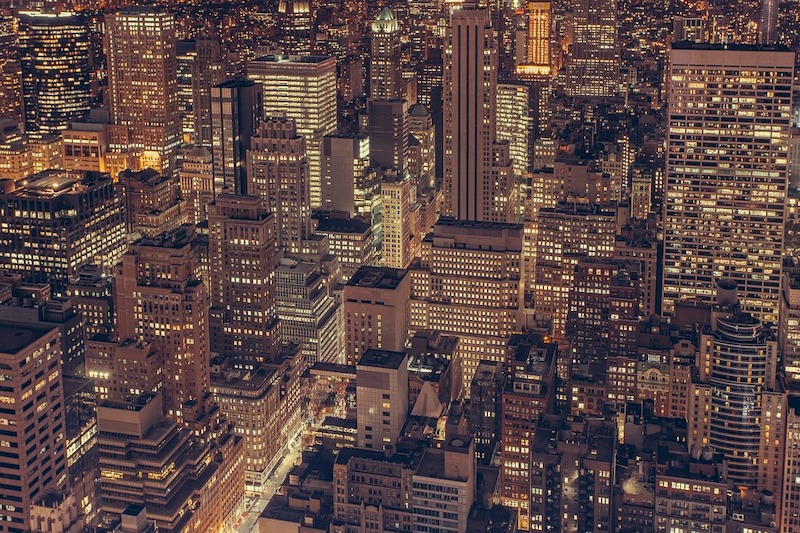Cities, where the urban heat island effect amplifies the impact of global climate change, are going to heat up in the coming decades. If greenhouse gas emissions continue on their current path, the average number of days that feel hotter than 100 degrees in the U.S. will more than double by 2050, according to a recent study.
Many cities around the world are taking action to keep cooler as temperatures rise. Some of the most common strategies are cool streets, cool roofs, and a broader urban tree canopy.
For example, Melbourne is mapping street trees and embarking on massive tree-planting efforts. The Australian city plans to double its canopy cover by 2040.
New York City has coated more than 10 million sf of rooftops with a white, reflective coating over the last decade. In Dallas, an initiative mapped areas that were hottest because of a lack of trees, and then planted trees in these areas along key pedestrian routes such as the paths that children take to school.
Tokyo has coated miles of streets with reflective pavements. Other cities have tested pavement that allows grass to grow through it.
Related Stories
| Mar 22, 2012
Bill would reintroduce “opt-out” provision in lead paint law
The Lead Exposure Reduction Amendments Act of 2012 (S2148) would restore the "Opt-Out" provision removed from the Environmental Protection Agency's Lead Renovate, Repair and Painting (LRRP) rule in April 2010.
| Mar 15, 2012
New Florida building code establishes flood and storm surge provisions
The new 2010 code establishes minimum design and construction requirements to protect buildings from wind, rain, floods, and storm surges.
| Mar 15, 2012
Illinois city rejects international code due to home sprinkler requirement
Macomb, Illinois aldermen voted to recommend that the city not adopt 2012 international building and residential code standards requiring the installation of overhead sprinkler systems in newly constructed one-family and two-family homes.
| Mar 15, 2012
Tenant advocates propose licensing landlords in New York City
With thousands of New York City rental units posing potential dangers to tenants, city advocates are proposing measures to make landlords improve building safety.
| Mar 15, 2012
Construction industry a big winner in federal small disadvantaged business procurement
Last year, only 5% of federal contract dollars went to small disadvantaged businesses. Construction and facilities support firms were the biggest beneficiaries.
| Mar 15, 2012
ANSI approves new fall protection standards
The American National Standards Institute (ANSI) has approved two American Society of Safety Engineers' (ASSE) standards addressing fall protection.
| Mar 8, 2012
Engineering innovation provides new option for meeting seismic codes in skyscrapers
Two University of Toronto engineers have developed “viscoelastic-energy-dissipating dampers” to replace many of the heavy concrete beams used in tall structures.
| Mar 8, 2012
CSI webinar on building code compliance March 22
A March 22 webinar will provide an overview of a 28-step process during the design of a building to ensure compliance with building codes.















